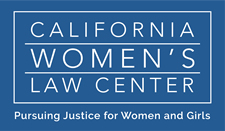Coronavirus continues to expose deep injustices in our society, including our health care system, where inequalities are being compounded by ideological interference.
Unfortunately, many states are using COVID-19 as an excuse to limit access to abortion by including it among other “elective surgeries” that have temporarily been banned during the pandemic. While many courts have blocked such efforts, earlier this month a federal appeals court issued a ruling that put Texas one step closer to enacting their proposed ban on abortion.
While many other legal challenges are underway, this decision puts already vulnerable women further at risk during this national crisis.
In addition, as Congress considers COVID-19 relief bills, some lawmakers are attempting to add provisions that expand the Hyde amendment and deny low-income women access to abortion. We encourage you to contact your member of Congress and demand they reject any attempts to include abortion restrictions in a COVID-19 relief package.
Meanwhile, the legal battle over our nation’s family planning program, Title X, wages on. When the Trump administration issued new regulations last year to limit access to family planning and abortion, lawsuits quickly ensued (read our piece in Ms. Magazine for the full story). After an en banc panel of the 9th Circuit Court of Appeals decided to uphold the regulations in February, new petitions have recently been filed by California State Attorney General Xavier Becerra and others requesting reconsideration. While the odds of the court granting reconsideration are not high, we are grateful to California’s leaders and advocates who are using every tool available to protect women’s health care.
The people impacted the most by these ideological political attacks are also affected by added injustices throughout our health care system. The majority of women who rely on Title X are low-income, and most identify as a person of color.
Last week was Black Women’s Maternal Health Week, a reminder of the existence of racial bias and discrimination in our health care system. When safety-net providers are forced to close because of political attacks, it is often communities of color that suffer.
Health care should not depend on a woman’s zip code or the color of her skin.
The Supreme Court is preparing to hear its first case on abortion since the appointments of Justices Gorsuch and Kavanaugh, and the stakes could not be higher—especially for women who are already marginalized, who live in states without leaders who will protect their health, and who contend with unfair treatment in our health care system.
CWLC is committed to being an advocate for every woman and her right to safe, legal, accessible medical care during this crisis and beyond.
